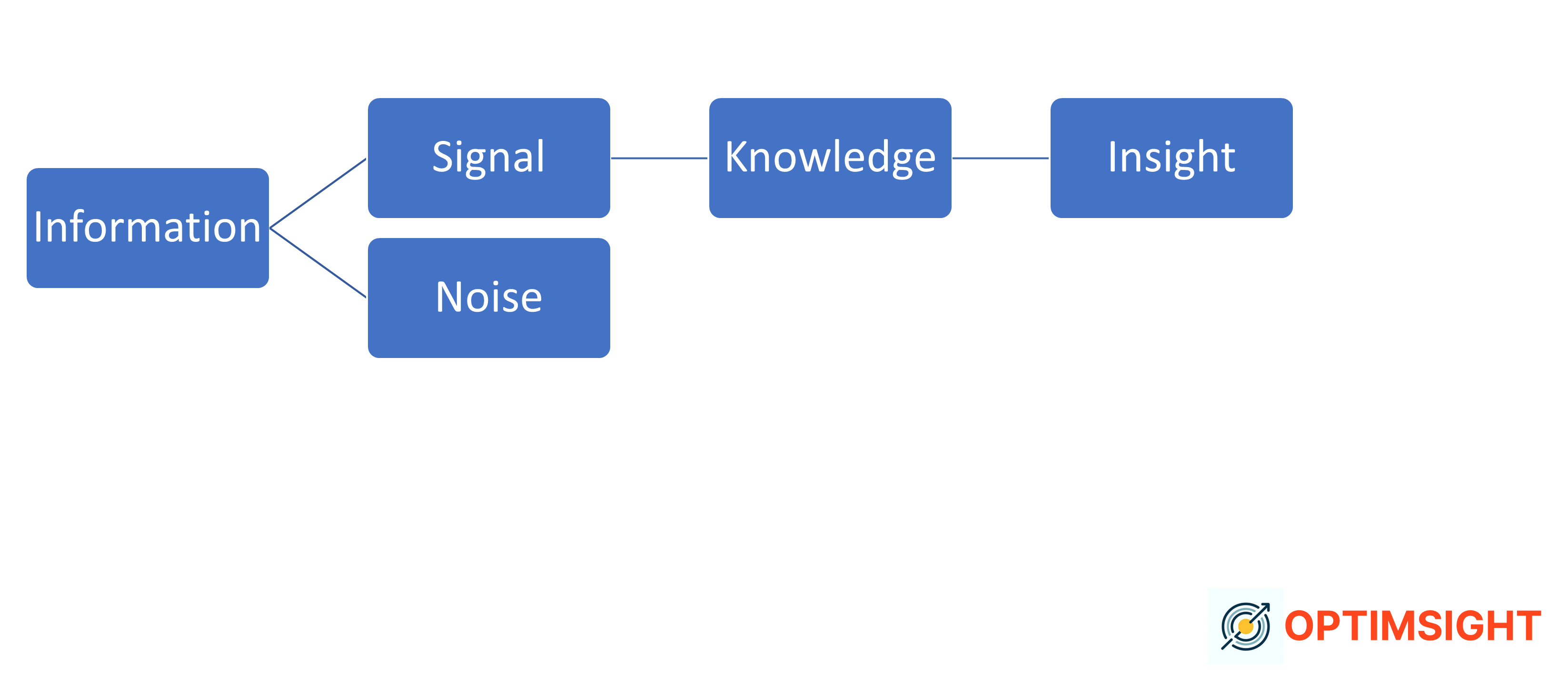January 28, 2024
3 min read
Operating In The Currency Of Insights
All successful people operate in the currency of insights. Insight is the smallest unit of truth that is actionable.

We are in the information age where the current challenge is excess information and not the lack of it. Excess information is creating more noise and less signals. To acquire meaningful knowledge, we have to first separate signals from noise. By going deeper on this knowledge you gain insights.
Gaining insights was never meant to be easy. How long does it take carbon to crystallize into a diamond? How long does it take organic matter to become oil? Just like it takes nature millions of years to create a beautiful diamond or oil that has a high calorific value, insights are also the result of distilling information through a long and complex process that takes time.
However, human beings are the only privileged species on the planet that can shortcut this process of gaining insights by exchanging ideas and learning from each other.
"The best ideas are common property." - Seneca
“Learn from the mistakes of others. You can't live long enough to make them all yourself.” - Eleanor Roosevelt
"The tools for learning are abundant. It’s the desire to learn that’s scarce." - Naval Ravikant
So why should you care about insights? Here's Kunal Shah putting it eloquently:
"You'll rarely meet successful people who are not insightful. I believe that insight is the smallest unit of truth that is actionable. And therefore, people who operate in the currency of insights tend to be generally more successful." - Kunal Shah
Here's Charlie Munger on the incredible financial rewards from a few good insights:
"How many insights do you need? Well, I’d argue that you don’t need many in a lifetime. If you look at Berkshire Hathaway and all of its accumulated billions, the top 10 insights account for most of it. And that’s with a very brilliant man—Warren’s a lot more able than I am and very disciplined—devoting his lifetime to it. I don’t mean to say that he’s only had 10 insights. I’m just saying that most of the money came from 10 insights." - Charlie Munger
So how can you gain insights? Let's turn once again to the master himself, Charlie Munger who had a lot of advice on this question:
-
"The only way to win is to work, work, work, work, and hope to have a few insights."
-
"Develop into a lifelong self-learner through voracious reading; cultivate curiosity and strive to become a little wiser every day."
-
"I believe in the discipline of mastering the best that other people have ever figured out. I don’t believe in just sitting down and trying to dream it all up yourself. Nobody’s that smart."
-
"Develop fluency in mental models from the major academic disciplines."
-
"If you want to get smart, the question you have to keep asking is Why, why, why?"
So you're putting in all the hard work and gaining valuable insights. What next? Recall that we've defined an insight to be the smallest unit of truth that is actionable. What is the point of gaining insights if they are not put to work i.e. made actionable?
Here are some ways you can put your valuable insights to work:
- Write down your insights.
- Revise them often.
- Ask yourself,
"how can I apply this insight to my life currently?". - Consider sharing some of your insights with the world.